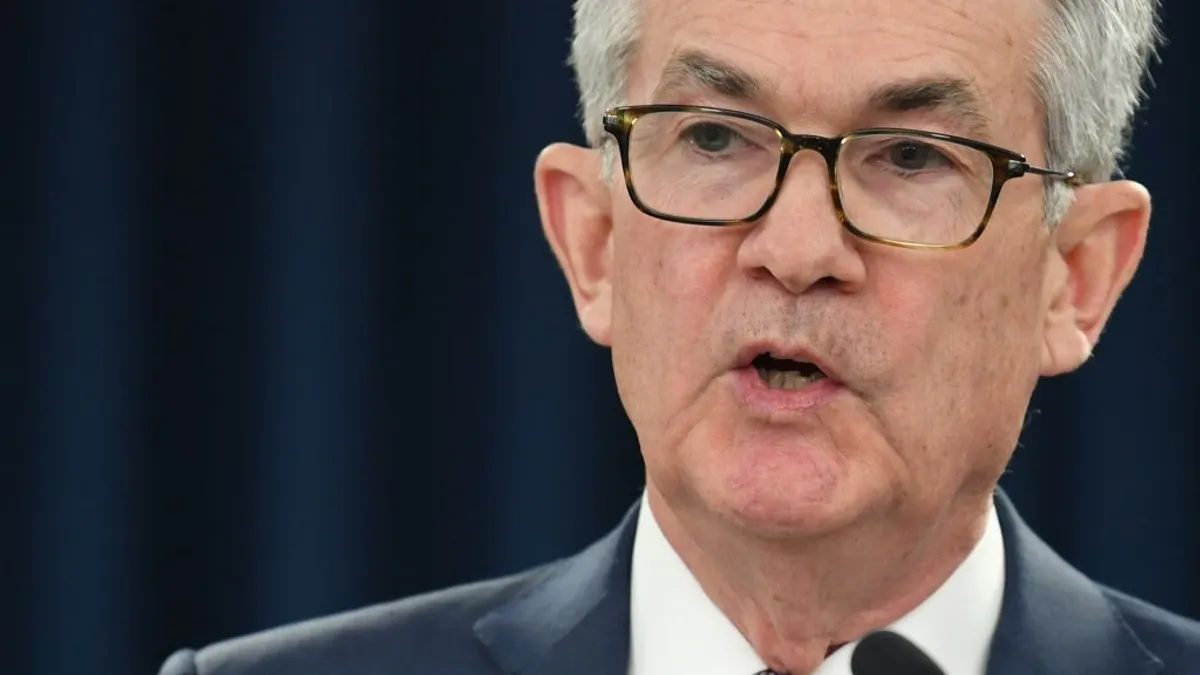The coronavirus and workforce disruptions have created labor shortages that may prolong a surge in prices beyond current Federal Reserve forecasts, according to some central bankers.
High inflation has already persisted longer than Fed policy-makers projected, challenging their assurances that a surge in prices is transitory.
Fed officials have steadily increased their estimates for the rise in the core personal consumption expenditures (PCE) price index in 2022. In September last year they projected a 1.8% gain in core PCE during 2022. Now they forecast a 2.3% increase, according to estimates released last week.
Fed Chair Jerome Powell in testimony to the Senate Banking Committee on Tuesday said inflation may once again exceed projections.
“Bottlenecks, hiring difficulties and other constraints could again prove to be greater and more enduring than anticipated, posing upside risks to inflation,” Powell said.
The Fed would gain a clearer view on the duration of inflation if it focused more on shortages and other disruptions to the labor market, former central bankers said. They commented as CFOs make final decisions about pay levels for 2022 while confronting one of the tightest labor markets in decades.
The number of U.S. job openings rose to a record high of 10.9 million at the end of July, the U.S. Bureau of Labor Statistics reported this month, as the highly contagious delta variant of COVID-19 discouraged many workers from employment. BLS tracks information dating to 2000.
U.S. manufacturers see workforce shortages as their biggest risk and, during the next 12 months, plan to increase wages by 3.5%, a record rate in quarterly surveys dating to 1997, according to the National Association of Manufacturers.
“What people have been not focusing on enough is that there are some genuine adjustments in labor supply and demand — more on the supply side — that are going on, and we should not expect those to work through the economy in six to 12 months just because that seems convenient to the Fed,” according to Adam Posen, a former member of the Bank of England’s Monetary Policy Committee.
Job market churn
Lockdowns and layoffs during the pandemic have prompted many workers to shift jobs, according to Posen, president of the Peterson Institute for International Economics. “There’s been a massive re-evaluation of that across a wide range of parts of the workforce and, to a lesser degree, a re-evaluation by employers” who are considering automation.
Large companies such as McDonald’s, Amazon and Bank of America have increased wages and lured workers away from small- and medium-sized companies, Posen said Tuesday at a National Association for Business Economics conference. “I don’t view this as the start of a long wage-hike spiral, but I do view this as a process that is likely to persist and be inflationary.”
Also, a rise in the prices for homes and other assets during the past several months has prompted workers to retire earlier than they planned, Posen said.
“This kind of churn, unsurprisingly, looks like a supply shock,” Posen said. “That kind of friction leads to increases in wages that may not spiral, may not persist, but they take a while.”
High inflation will probably continue for as long as 30 years following a reversal in demographic and other sweeping trends that increased the availability of labor and held down price increases for decades, according to Charles Goodhart, a former member of the Bank of England’s Monetary Policy Committee.
Populations are aging, and workforce growth is slowing in China and most advanced economies, creating upward pressure on wages, said Goodhart, professor emeritus at the London School of Economics. Globalization is in retreat as countries erect roadblocks to migration and the exchange of goods, services and capital.
“This huge surge in the availability of labor is about to end and indeed is currently reversing very sharply,” said Goodhart, co-author of "The Great Demographic Reversal: Aging Societies, Waning Inequality and an Inflation Revival."
“The growth in the working-age population is not going to slow, it’s actually going to decline,” Goodhart said Tuesday at a conference sponsored by the European Central Bank. “People will bid up wages in order to deal with the shortages of workers they will be increasingly facing — that’s not transitory, it’s here for the long-term.”























